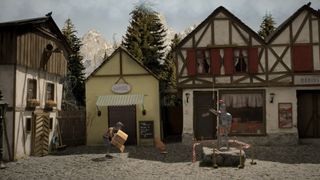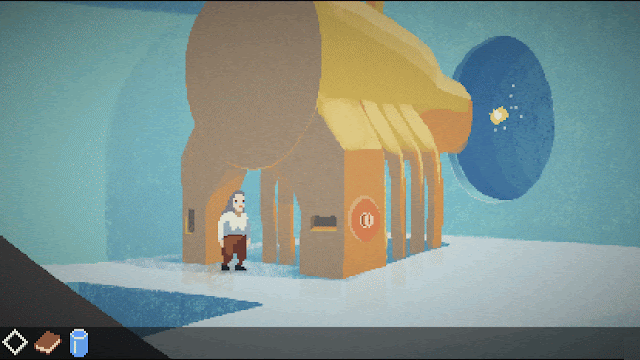Boleskine
Arcane
- Joined
- Sep 12, 2013
- Messages
- 4,045
https://www.pcgamer.com/this-sci-fi-adventure-game-was-built-from-handmade-miniature-scenery/
This sci-fi adventure game was built from handmade miniature scenery
By Fraser Brown 6 hours ago
Trüberbrook is coming soon.

Trüberbrook is a sci-fi mystery set in '60s Germany but inspired by TV shows like Twin Peaks, X-Files and Stranger Things. We're also promised dinosaurs. Playing as an American scientist and lottery winner on his holiday, you'll be able to explore a German village during the Cold War and somehow get embroiled in a fate-of-the-world crisis.
As a fan of the Broken Sword series, I'm more than happy to once again step into the shoes of a slightly confused American tourist, but the real hook is the scenery. It was all made by hand, each building and object, and then transformed into a digital facsimile using photogrammetry. The technique has been used to create incredibly realistic environments in games like The Vanishing of Ethan Carter, but in Trüberbrook it's used to bring its tiny sets to life.
You can see the result in the trailer below.
It's even lit using physical lighting. Real lights are used to illuminate the interiors, as well as simulating the weather and time of day. It sounds like a lot of hard work, but looks incredible.
You can see how the lighting changes a scene and get a glimpse of how the sets were built on the Kickstarter page. It was funded back in 2017 in just over a day.
Trüberbrook is due out on Steam and GOG on March 12.
Last edited by a moderator:








![The Year of Incline [2014] Codex 2014](/forums/smiles/campaign_tags/campaign_incline2014.png)









